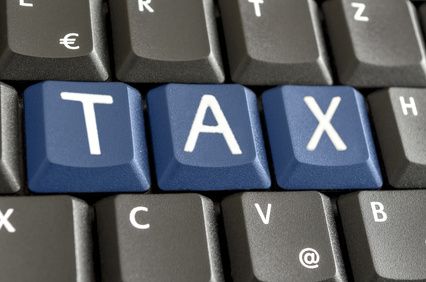 If you are a sole trader or consider yourself to be self-employed you will need to declare your income and expenses to HMRC at the end of each tax year through a self-assessment tax return. Even if you earn income in addition to being employed and receiving pay through a payroll from your employer you need to declare your additional income to HMRC. The only exception to this is if you have earned less than £1,000 during the year.
If you are a sole trader or consider yourself to be self-employed you will need to declare your income and expenses to HMRC at the end of each tax year through a self-assessment tax return. Even if you earn income in addition to being employed and receiving pay through a payroll from your employer you need to declare your additional income to HMRC. The only exception to this is if you have earned less than £1,000 during the year.
The tax year runs from 6th April of one year to 5th April of the following year, although income and expenses are often recorded and declared for a period from 1 April to 31 March especially if your accounts are retained on software which can only produce monthly reports.
Some sole traders will have their accounting period starting and ending at a different time during the year but the accounting period would generally cover the same 12 month period. If your year end date changes for any reason this can be explained on your self assessment return. It is much easier to record your income and expenses for the period which ties in with the standard tax year and if your business starts during the year you can submit accounts to 31st March or 5th April even if this is only for a few months. The next year you will retain the same year end date and submit accounts for the full 12 months.
HMRC have recently been sending out reminders for individuals to complete their self-assessment tax return for the year to 5th April 2019. This return is straightforward to complete online if your self-employed accounts or the additional income you need to declare is simple to calculate. However if there are some complexities to your accounts it makes sense to ask an accountant to help you with this to ensure that what you submit is accurate and you are claiming all the expenses you are entitled to.
The sooner you can complete your tax return after 6th April the sooner you will know how much tax you will have to pay by 31st January the following year. If it is the first year you have been self-employed you may find that you have to pay the tax due plus another 50% of that tax due as an advance payment towards your tax for your next trading year. The balancing 50% will be due by 31 July, so effectively, apart from your first year of trading, you will be paying your tax bill in advance of submitting your figures for the next year.
Example:
If your first year of trading is 1 May 2019 to 31 March 2020, your first tax bill will be 31 January 2021. In addition to the tax paid on your earnings for the 11 months of trading you will have to pay another 50% of that tax as an advance tax payment on your expected earnings for the current year. Then you will pay the remaining 50% by 31 July 2021. These two additional amounts will be set against your tax bill due for your trading period 1 April 2020 to 31 March 2021 for which you will submit a return by 31 January 2022.
It will therefore help your cash flow if you can put regular amounts into a savings account for your future tax bill. The size of your first tax bill can be a bit of a shock especially if you have had a good first year.
If the tax due on your profit (the difference between your income and the expenses you can claim) is less than £1,000 you will not have to make an advance payment (called a Payment on Account).
The other reason for completing your tax return as early as possible after the end of the tax year is that you can make a claim to reduce your tax payment at 31 July if your profit is considerably lower. You will know the figures for the previous year to 31 March before you have to make the payment by 31 July so have time to make an application.
Everyone who is self employed or who has additional income over £1,000 per year must register with HMRC to complete a tax return. If you receive notification to complete a return and you are no longer self-employed or earning additional income then you must also inform HMRC as you will be fined if they expect a return from you and you don't submit one.
Reminder: If you have to make a second tax payment it must be received by HMRC by 31st July
